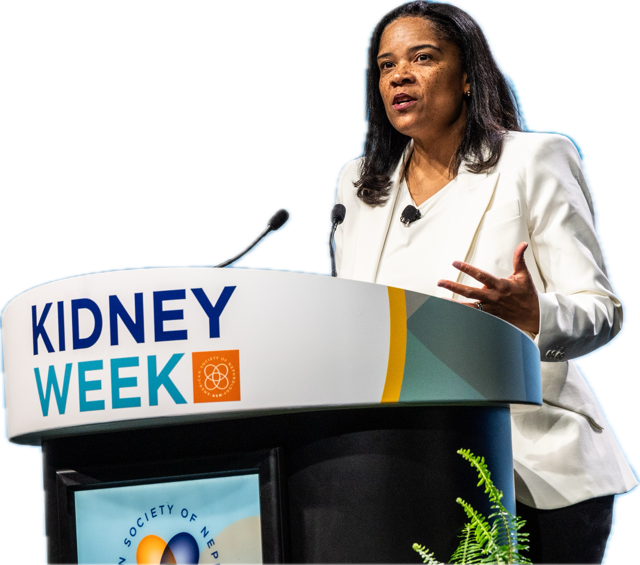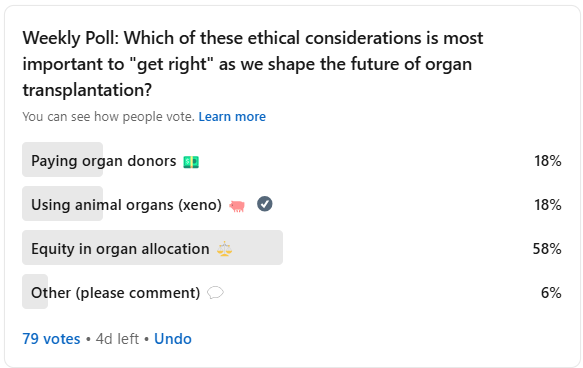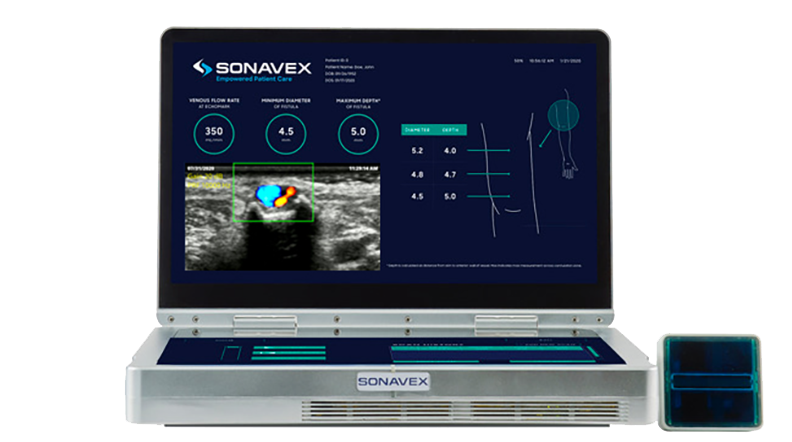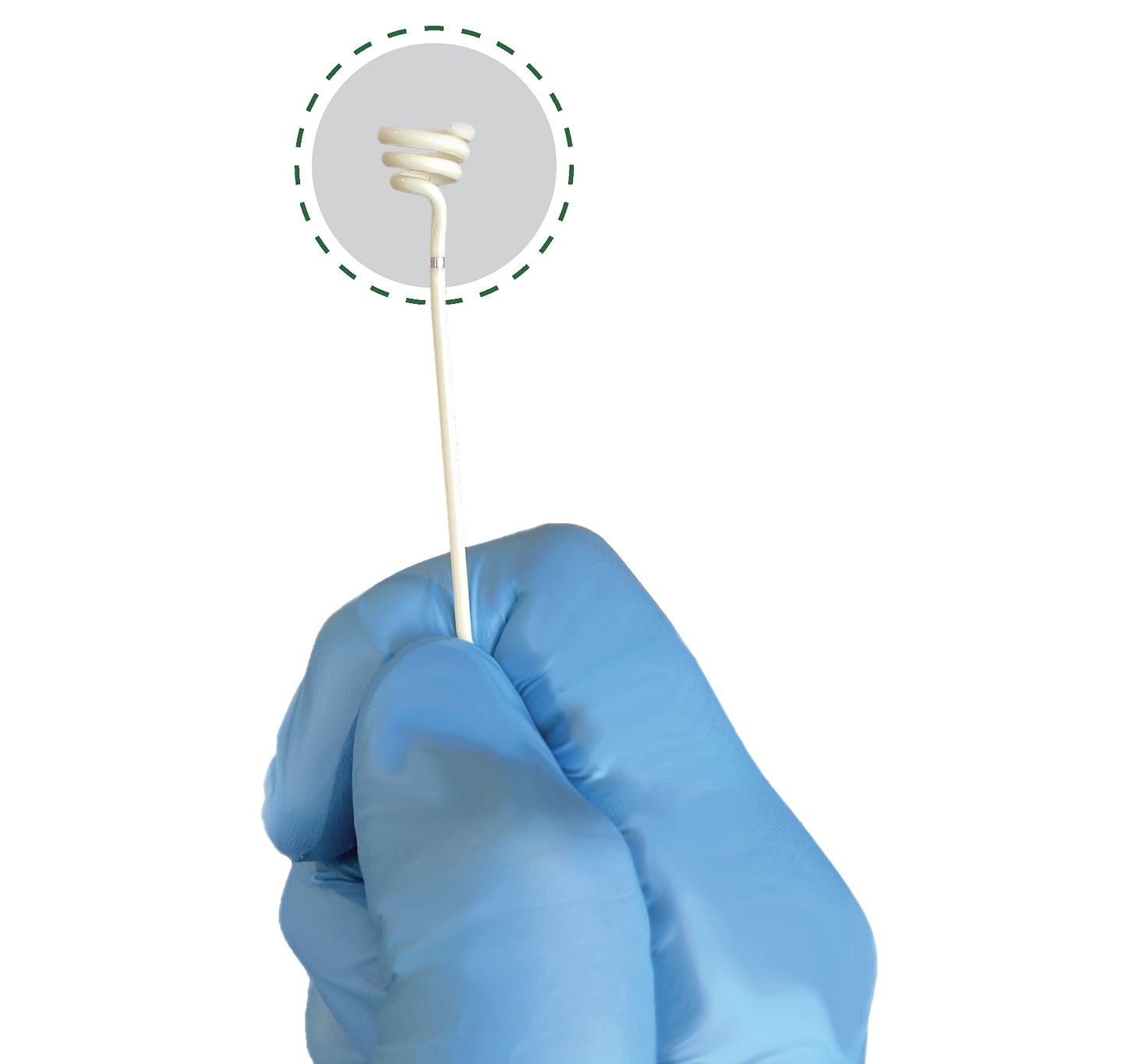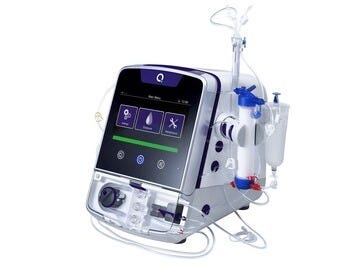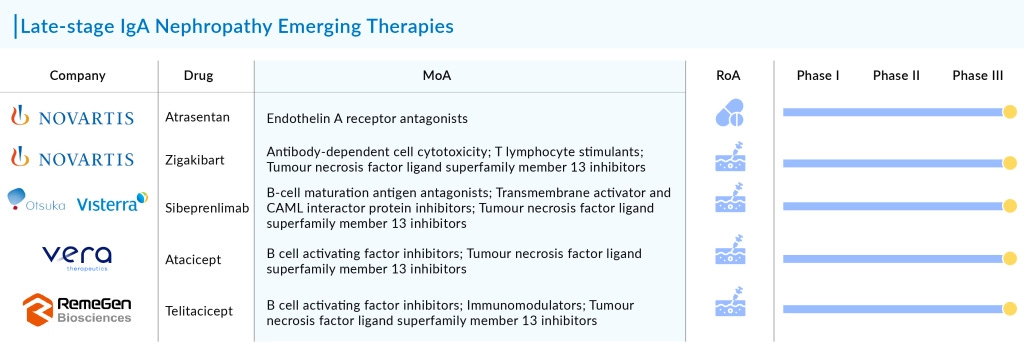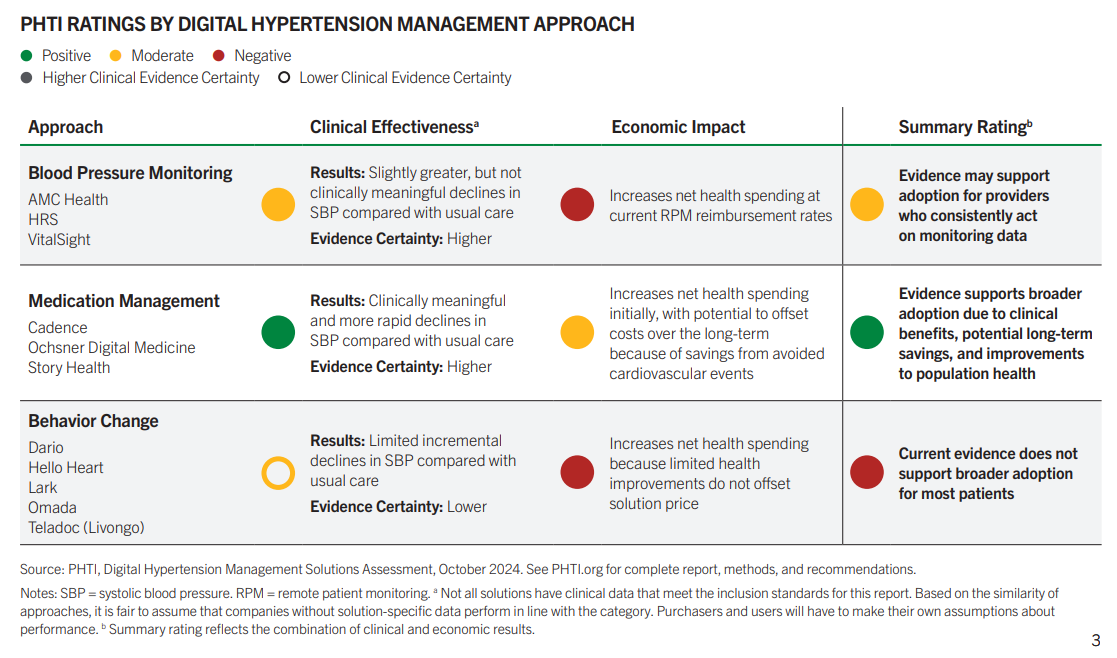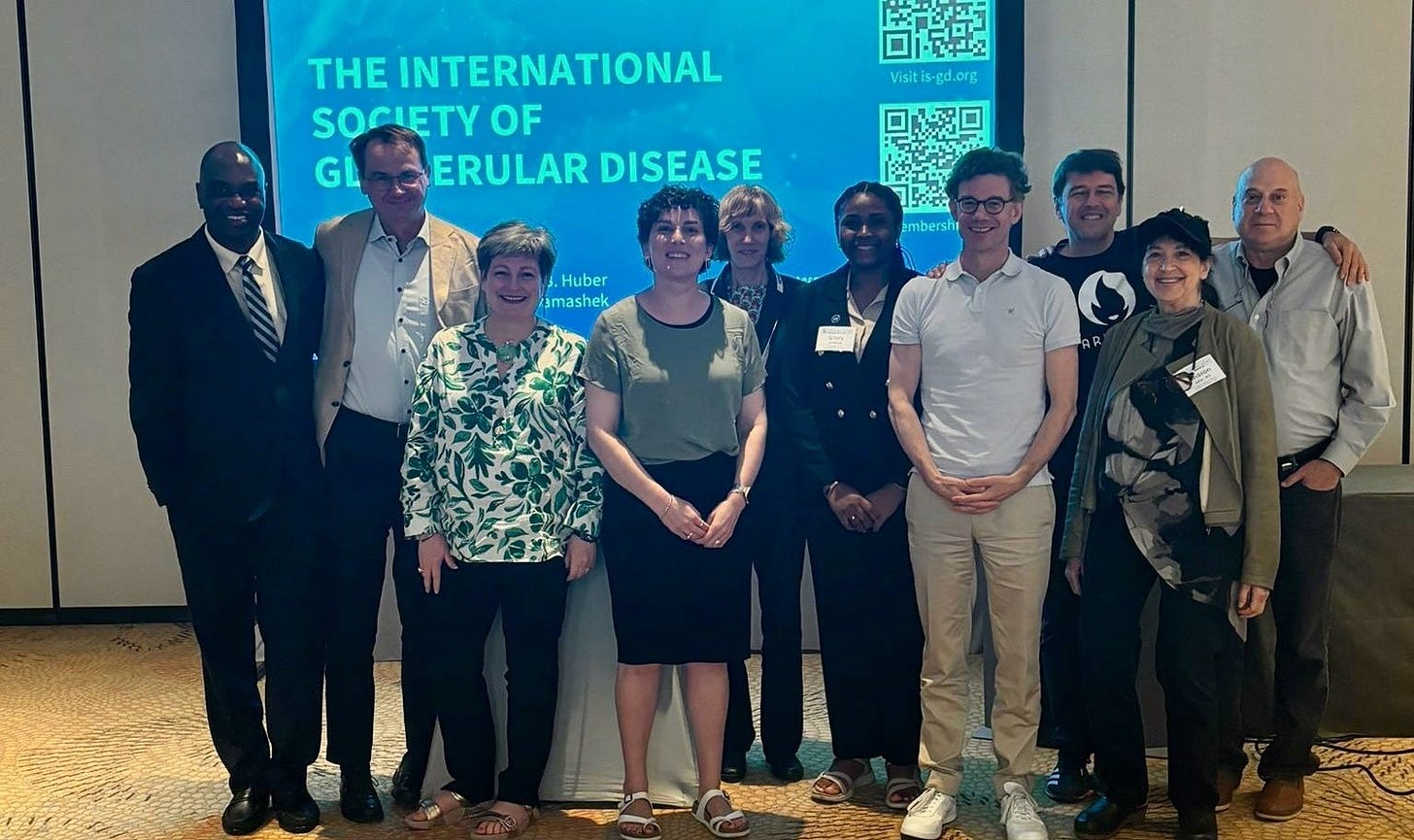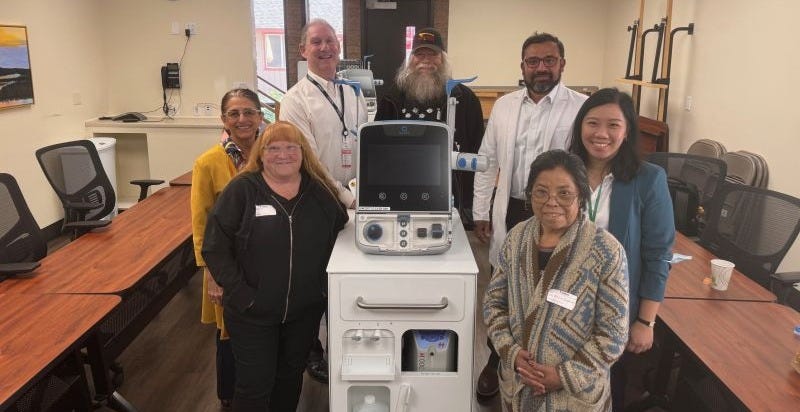Signals Weekly: Baxter restarts North Cove; CMS delays IOTA; IgAN at Kidney Week; Sonavex gets $15M; & more...
Your weekly collection of news, research, funding & community voices shaping the future of kidney care.
Yes, I’m still reeling from the frenetic, rhythmic pulse of Kidney Week. From Dr. Crews’ opening call to “redefine the standard” to the labyrinth of posters and bright-eyed fellows, I’m riding high with deep admiration and gratitude for those who make this week possible. To everyone I had the chance to meet in person—thank you for making those days feel like a true kidney-nerd's paradise. For those who reached out to share your stories, impressions, and optimism after the event, thanks for keeping Signals in your corner for kidney innovation updates.1
Later this week, we’ll start our full Kidney Week coverage, taking it one story at a time. If we missed you at the show and you have a story to share, please don’t hesitate to reach out and say hello.
Thanks, too, to everyone who voted on what you’d like us to cover. The top interests are innovation spotlights (50%) and scientific discovery (33%). So, we’ll stick with what we do best: covering the ideas, innovations, and investments shaping the future of kidney health. Stay tuned—there’s a lot more to come after this weekly recap.
Brought to you by Roivios
This edition of Signals was made free for all readers thanks to Roivios, the team developing the world’s first renal assist device. Check out JuxtaFlow, a clinical-stage solution for renal insufficiency. Thanks team!
Last week, Roivios released new clinical data from the BIPASS-AKI Feasibility Study of the JuxtaFlow® Renal Assist Device (RAD) at the STS Perioperative Care meeting. Learn more below…
This week
Poll: Top ethical considerations in transplantation
CMS delays IOTA model; KTC responds with analysis
Sonavex raises $15M to enhance dialysis ultrasound tech
Roivios device shows kidney protection post-surgery
Quanta gets FDA approval for home dialysis use
KDIGO opens up anemia guidelines for public review
Single APOL1 gene variant raises CKD risk in West Africans
IgAN therapies take center stage at Kidney Week
Renal denervation gains momentum in hypertension care
Early eGFR changes in ADPKD may predict outcomes
Report questions remote hypertension monitoring w/o med support
Clinicians launch Scrub Capital VC for health innovation
Year-end push highlights primary care in value-based models
Study IDs top social determinants for women with lupus nephritis
FDA panel votes against sotagliflozin for glucose control
BioCom CEO Summit: resilience, Q1 2025 IPO hopes
& More…
Transplant Ethics
In this week's poll, we want to know which of these ethical considerations you think is most important to "get right" as we shape the future of organ transplantation?
More than half (58%) said equity in organ allocation is most important to you, followed by even splits between paying organ donors (18%) and using animal organs, or xenotransplantation (18%). A few of you also had other top of mind ethic questions, so let’s talk about a few of them.
Below are a few insightful comments, questions, and perspectives provided in the comments on this post. What do you think?
Miriam Godwin: “It's not the sexiest answer but the failure to protect trust and transparency in organ allocation has been a spectacular failure of public policy. It is essential to have a robust and trustworthy regulatory framework that promotes innovation while defending against bad outcomes and bad behavior and on which novel, creative solutions to the problems that distress us can stand.”
Vanessa Evans: “You know what I think- make it easier to get patients listed- use a common app (like they do for college applications )to register - pair potential donors and recipients with an advocate – someone that has gone through it before- compensate donors - think tax breaks or free healthcare we must think more creatively.”
Stephen Ruby: “Extending the life of a kidney between the donor and recipient is perhaps one of the goals that may provide the greatest "bang for the buck." 34 Lives is doing that and has already made an impact for a number of patients who would otherwise not have received a donor kidney (at this time). Their impact will continue to grow into the future. Donated kidneys is perhaps one of the greatest resources we currently have for those with CRD and everything should be done to maximize the percentage of those kidneys that actually get into patients and change their life!”
Qasim Butt: Not sure if this is an ethical issue, but one of the biggest hurdles to me is patient navigation of the kidney transplant process…. Early referral, Education, Which transplant center to go to, Can I go to different centers, Getting on waiting list / getting medical clearance, How to get a living donor, etc. One of the most interesting nephrologists in this space that is trying to do something about it is Eliot C. Heher MD - just got to meet him at ASN last week.”
Jullie Hoggan: “Patients being referred for transplant evaluation when they qualify for listing rather than when they start or after they start dialysis. Patients should hear their options in time to make a choice and act. We'd never withhold information about the best treatment for heart disease or cancer, waiting until a more expensive less well tolerated treatment was necessary.”
Lilian Okonkwo: “Miriam Godwin and Qasim Butt, MD have highlighted significant gaps in the U.S. transplant system. As we approach the end of 2024, many patients remain unaware of transplant waitlists and state-specific wait times until they are involved in the process. I have observed a troubling trend of patients seeking kidney transplants abroad at substantial personal cost and returning to the U.S. for follow-up care. This underscores the urgency many feel while navigating a complex healthcare system marked by limited transparency and prolonged wait times…”
Matt Weeks: “I'd love to see better progress in advance donor election, moving way beyond checking the box on a drivers license, but yes, starting with the check-box and moving to live online curated (and private) networks, collecting the relevant profile data and doing a kind of shadow population matching. Instead of paying for donors, we might give those who have advance-registered as donors and given-up their medical profile stats, a kind of "priority" place in the long line for transplants should they end up needing a transplant. Just a thought experiment.”
Andrew Placona: “These are all potentially game changing. That said I have always thought about when organs are not limiting factor but rather surgical capacity. I don't know if there has been a study on the max potential of the system. Given what I have seen in terms of the workforce challenges, it is something that should be explored.”
Uptal Patel: “Great topic Tim! I'll call on my amazing KHI colleagues Mary & Kevin to share their views while pointing this group to a prior KHI project on xeno.” (see video below)
Signals
Kidney group urges CMS to prioritize Increasing Organ Transplant Access payment model
A new analysis of kidney waitlist data released by the Kidney Transplant Collaborative (KTC) underscores a critical and growing challenge facing the U.S. healthcare system: a dramatic increase in the number of individuals waiting for a kidney transplant, especially in key presidential swing states. The Kidney Transplant Collaborative expressed disappointment at the delayed CMS launch of the Increasing Organ Transplant Access model. CMS is continuing to work on the final rule, but has indicated a later-than-expected start beyond the original implantation date of Jan. 1, 2025.
“The growing kidney transplant waitlist is a matter of life and death, and it is critical that we support policies that incentivize donation, reduce geographic disparities, and ensure every person in need of a kidney transplant has a chance to survive.”
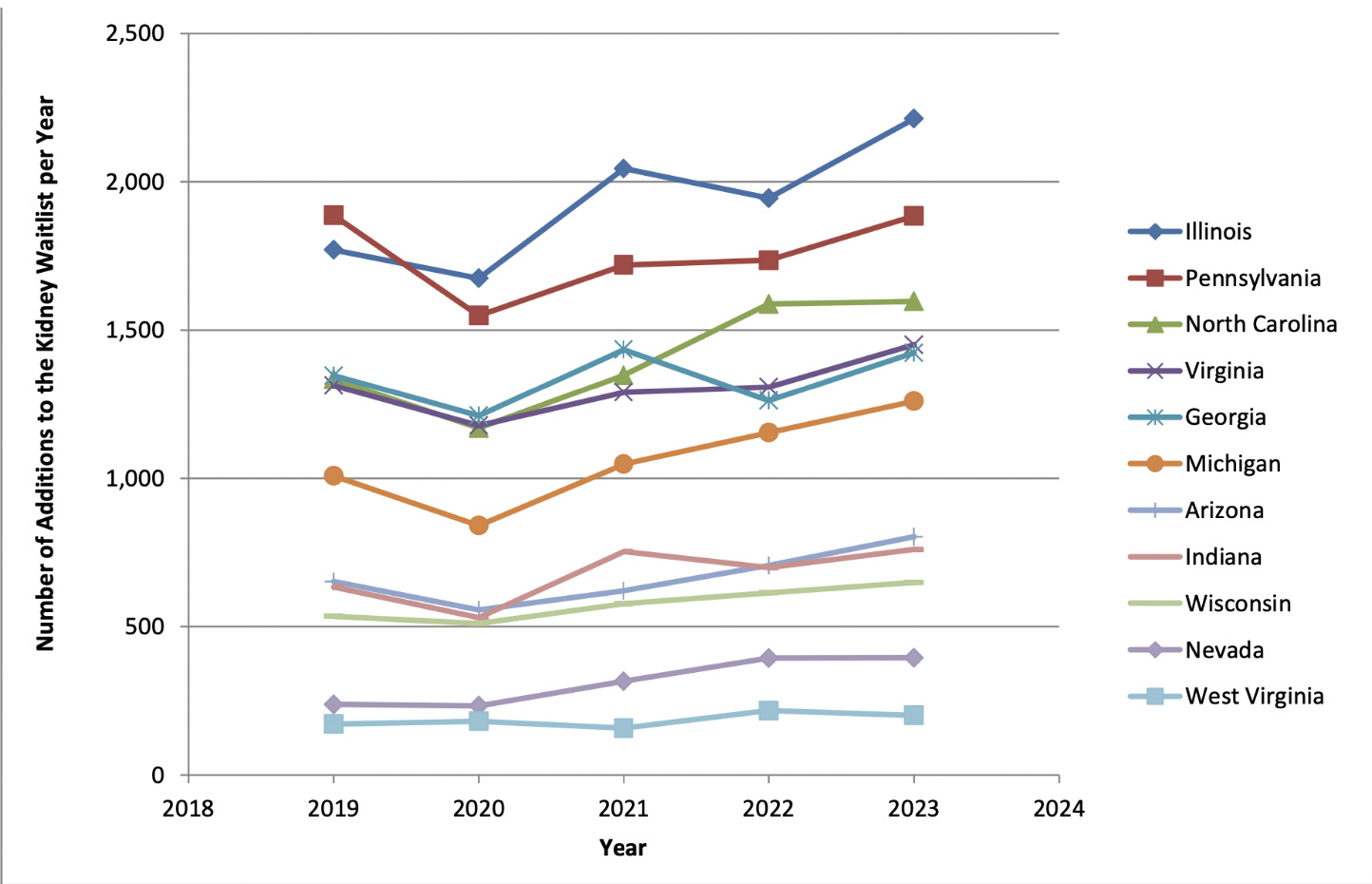
Sonavex secures $15M Series A-2 financing
Sonavex, a Baltimore-based medtech company focused on ultrasound solutions, has raised $15 million in a Series A-2 round to advance its vascular and dialysis-focused technologies, EchoMark® and EchoSure®. These tools provide real-time, quantitative blood flow data and enable AV fistula assessment in dialysis clinics. This funding will support ongoing clinical trials, including the pivotal MAFASA study, and build further evidence for its technologies. The raise follows key milestones such as FDA approval for an IDE, a new CPT code, and additional funding for pipeline product clearances.
Roivios Releases Clinical Data on the JuxtaFlow RAD
At the Society of Thoracic Surgeons (STS) Perioperative Care Meeting, Roivios presented promising results from its BIPASS-AKI feasibility study on the JuxtaFlow® Renal Assist Device (RAD). This novel device, used post-cardiac surgery, showed potential to protect kidney function in high-risk patients. The trial results revealed a high success rate in catheter placement and no device-related adverse events, with only 2 out of 10 patients experiencing postoperative AKI—one due to protocol deviation. This breakthrough could significantly improve outcomes for cardiac surgery patients vulnerable to acute kidney injury. CEO John Erbey said:
"This study tested the initiation of the JuxtaFlow RAD nearly two hours after patients were weaned from cardiopulmonary bypass, likely after the insult to their kidneys already occurred. The results highlight the potential of JuxtaFlow RAD in enhancing postoperative recovery."
Quanta Dialysis Technologies Gains FDA Clearance for Home Use Dialysis System
Quanta Dialysis Technologies has received FDA 510(k) clearance for home use of its high-flow Quanta Dialysis System, making it the only high dialysate flow (500 mL/min) system approved for the full spectrum of care settings for end-stage renal disease (ESRD) patients. With fewer than 3% of U.S. dialysis patients receiving home hemodialysis (HHD), Quanta’s system offers an alternative by matching hospital-grade standards and simplifying home dialysis setup. Clinical trial results presented at ASN showed high patient satisfaction and a safe transition to home therapy, supporting Quanta’s goal of expanding accessible, effective home dialysis options.
KDIGO Opens Public Review for Updated Anemia in CKD Guidelines
KDIGO has released a draft update of its 2012 Clinical Practice Guideline for Anemia in Chronic Kidney Disease (CKD) and is inviting public feedback through November 22. The 2025 guideline draft offers comprehensive guidance on anemia management in CKD, addressing treatments like iron supplementation, erythropoiesis-stimulating agents, HIF-PH inhibitors, and RBC transfusions. Built on a GRADE-based analysis of the latest evidence, the update includes new recommendations and practice points for healthcare providers and patients managing CKD-related anemia. KDIGO encourages contributions from the community to refine the final publication, aiming to improve patient outcomes and inform future research directions.
Study: One APOL1 Variant Increases CKD Risk in West Africans
New research from the H3Africa Kidney Disease Research Network shows that even one APOL1 gene variant can raise the risk of chronic kidney disease (CKD) and focal segmental glomerulosclerosis (FSGS) in West Africans. Previously, only two variants were thought to significantly increase risk, but this study found that having one variant increases the chance of CKD by 18% and FSGS by 61%. With these variants common in some West African groups, the findings could guide future treatments to reduce CKD rates and severity in African populations.
ASN President Highlights Efforts to Address Inequities and Advance Kidney Care
During her opening remarks at ASN Kidney Week, Dr. Deidra Crews emphasized the need to address social disparities in kidney disease, noting that factors like income and structural inequities impact kidney health outcomes, especially among Black adults. The ASN is partnering with federal agencies and specialty groups to enhance funding, policy, and education. Crews also highlighted ASN’s initiatives, such as removing race from eGFR equations, advancing clinical trials on health disparities, and launching resources like the Kidney Health Guidance and Partnership for Responsible AI in Kidney Health. These efforts aim to redefine the standard of care and equip clinicians with timely tools to improve kidney health equity and outcomes.2
IgAN Was a Hot Topic at ASN Kidney Week
Jonathan Barratt, PhD, called IgAN "the world’s most important kidney disease" due to its widespread impact and evolving treatment landscape. At Kidney Week, a packed session highlighted IgAN's burden and the potential of APRIL—a molecule involved in the disease's pathogenesis—as a therapeutic target. Dr. Kenar Jhaveri emphasized that lowering proteinuria remains crucial in delaying IgAN progression, with new treatments offering promising options for patients, a stark contrast to the limited choices of just a few years ago. This focus on IgAN signals a shift toward more targeted and effective therapies in kidney disease.
Renal Denervation: Bizarre Coincidences, Opportunities, and Open Questions
Renal denervation (RDN), a minimally invasive procedure targeting kidney nerves to lower blood pressure, is gaining renewed attention following recent approvals for devices from Medtronic and Recor Medical. Clinical trials, including SPYRAL and RADIANCE, show promising, long-lasting reductions in blood pressure for patients undergoing RDN, with effects sustained up to three years. While the market is projected to grow to $128.7 million by 2028, lack of established reimbursement in the U.S. may limit uptake. If reimbursement improves, RDN could offer a valuable alternative to medication for people struggling to control their blood pressure, signaling a potential shift in hypertension care.3
“LSI's Market Intelligence team estimates that the RDN market will reach $52.5M by the end of this year, up 10.3% from $47.6M in 2023.”
Study: Early eGFR Changes with Tolvaptan Predict Long-Term Outcomes in ADPKD
A post hoc analysis of the TEMPO 3:4 study suggests that initial drops in estimated glomerular filtration rate (eGFR) within three weeks of starting tolvaptan can predict longer-term kidney health in patients with autosomal dominant polycystic kidney disease (ADPKD). Researchers found that a larger early drop in eGFR was linked to slower eGFR decline over time, indicating the potential for early eGFR measurements to help forecast tolvaptan's impact. This insight could guide clinicians in managing ADPKD, especially in the early stages of treatment. It’s worth noting tolvaptan is currently the only pharmaceutical treatment for ADPKD.
Report: Remote monitoring for hypertension has little value without medication management
The Peterson Health Technology Institute (PHTI) released a report on digital hypertension solutions, praising medication management-focused remote monitoring tools while questioning the impact of behavior change solutions. According to PHTI, companies like Cadence and Story Health, which integrate blood pressure monitoring with medication adjustments by dedicated care teams, deliver better outcomes and longer-term cost savings compared to traditional care. In contrast, behavior-driven solutions, like reminders for medication adherence or lifestyle changes, showed minimal impact on blood pressure outcomes and added financial strain to healthcare systems. This report echoes PHTI's prior findings on digital diabetes solutions, raising industry debate on the value of various digital health tools in managing chronic conditions.
How a group of clinicians launched a VC firm
Scrub Capital, a venture capital firm founded by a group of 650 clinicians, recently launched to invest in digital health and medical device startups. With a target of $10 million for its first fund, the firm uniquely engages clinicians in its due diligence process, allowing healthcare professionals to shape investments based on their on-the-ground expertise. Co-founder Christina Farr emphasized the firm’s mission to empower clinicians as investors, aiming to bring diverse, non-finance voices to the venture capital space and build lasting value in healthcare innovation.
Hello Patient launches out of stealth with $6M to roll out generative AI phone agents for medical practices
Startup Hello Patient, co-founded by former Carbon Health executive Alex Cohen, has introduced generative AI call agents to manage administrative tasks like appointment scheduling and prescription follow-ups in healthcare practices. By automating these routine communications, Hello Patient aims to reduce administrative costs and free staff for patient-facing roles, providing HIPAA-compliant support for both in-person and virtual care settings. With $6.3 million in seed funding, Hello Patient is poised to modernize healthcare communications by meeting patients' preferences for phone and text interactions, while enhancing practice efficiency and lowering costs.
Why is primary care more important in Q4?
Care gaps—the difference between clinical guidelines and actual care received—remain a major focus as health plans and providers shift to value-based care (VBC) models. Yet, due to fragmented contracts and conflicting quality metrics, providers struggle to prioritize and effectively close gaps. This leads to a chaotic "Q4 push," where healthcare organizations rush to meet quality measures before year-end deadlines, often frustrating patients. Experts suggest that flexible, rolling reporting periods and streamlined quality measures could reduce year-end pressure, allowing for smoother, more patient-centered care delivery.
Study: Transportation among top social determinants of health for adults with lupus nephritis
A lupus navigator pilot program identified transportation, copays, and treatment adherence as the top barriers to care for young African American women with lupus nephritis. Led by Dr. Abdallah Sassine Geara at the University of Pennsylvania, the program used community health workers to help patients navigate social determinants of health. Interventions included financial support, social services referrals, and assistance with medical supplies, underscoring the need for integrated support to improve lupus nephritis outcomes.
FDA panel votes against sotagliflozin for glucose control in type 1 diabetes, CKD
In an 11-3 vote, an FDA advisory panel recommended against approving sotagliflozin as an adjunct to insulin for type 1 diabetes patients with chronic kidney disease (CKD), citing concerns about diabetic ketoacidosis (DKA) risks. Despite evidence of improved glucose control, the committee found that the risk of DKA in this population outweighed the benefits. Prabir Roy-Chaudhury, who voted in favor for certain CKD subgroups, emphasized the importance of targeted risk mitigation. Although the FDA usually follows its advisory panels, the final decision on sotagliflozin is expected by December 20.
Study: Educational intervention improved dialysis decision-making in veterans with advanced CKD
A comprehensive pre-dialysis education program across five VA healthcare systems significantly improved veterans' decision-making about kidney replacement therapy (KRT). After the intervention, 94.5% of veterans were able to express a KRT preference, up from 38.5%, with home dialysis preference rising from 21% to 82%. The program highlighted that increasing CKD awareness and health literacy can empower patients to make informed choices, boosting confidence in treatment decisions among veterans with advanced kidney disease. Author’s note: music to my ears, where do I sign up and get involved? Great work, Dr. Wadhwa and team!
BioCom CEO Summit Highlights Investor and CEO Perspectives
In her latest edition of Vital Signs, Managing Director and co-lead of the Venture Talent Group Jackie Ross shared her takeaways from the recent BioCom CEO Summit. Investors noted strong interest in early-stage deals and anticipated more consolidations and shutdowns alongside fresh Series A investments. CEOs shared advice on resilience, the value of personal advisors, and finding balance between driving teams hard and offering positive reinforcement. Predictions included a challenging IPO landscape this quarter, with an expected rebound in Q1 2025.
Study: Kidney transplant patients with more pain report less involvement in social activities
Research presented at ASN Kidney Week reveals that kidney transplant recipients experiencing moderate to severe pain have lower social participation, highlighting the need for enhanced pain management. In a study of 282 transplant recipients, those with higher pain scores were five times more likely to report low social involvement. Dr. Istvan Mucsi suggests that dedicated symptom management or renal supportive care clinics, like those in Australia and some U.S. centers, could improve quality of life by addressing chronic pain in this population.
Community Voices
A collection of insights, opinions, updates and upcoming events from your peers and fellow explorers across the Kidneyverse.
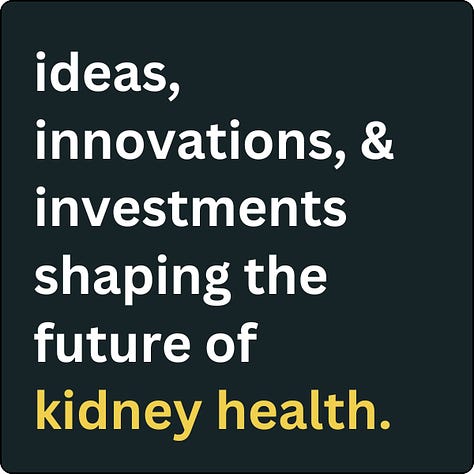
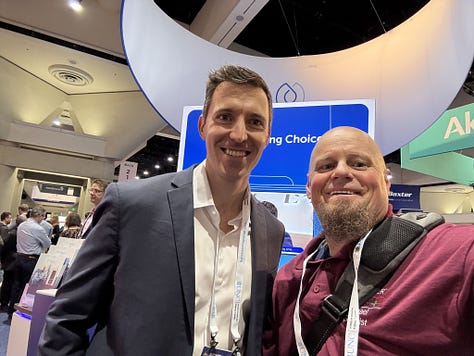
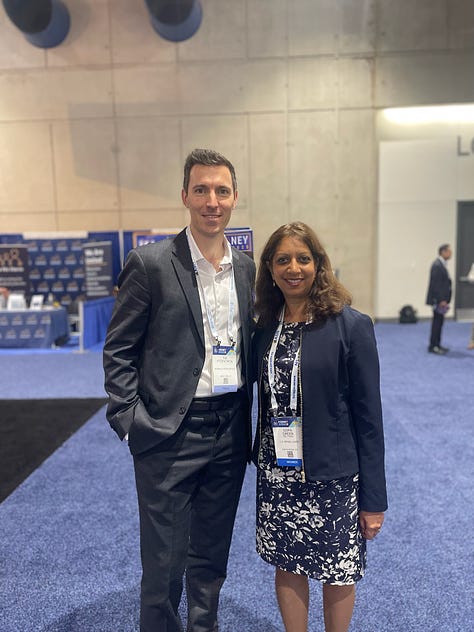
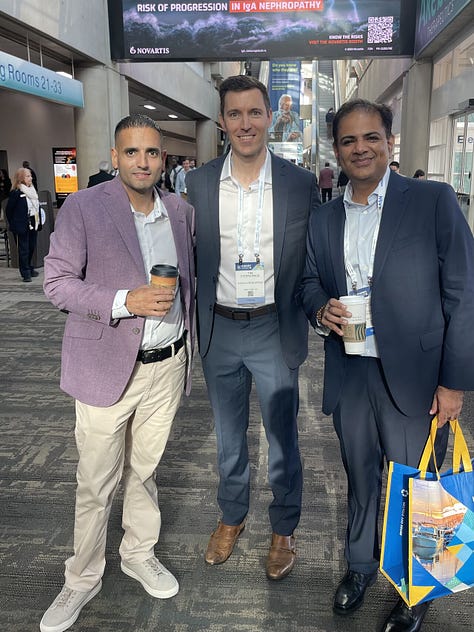
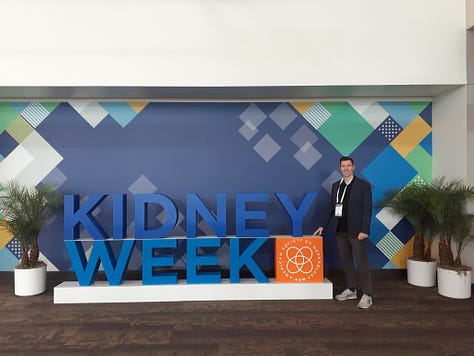

Baxter International: "We are excited to announce that we’ve restarted our first IV fluids line at our North Cove facility. Initial batches will be manufactured concurrently with ongoing quality activities and would only be released in accordance with applicable regulatory requirements to ensure the quality and safety of the products. Thanks to the entire team across Baxter and our remediation partners for their hard work and dedication, and the ongoing support of federal, state and local government agencies..."4
Dr. Amber Paulus: "Thank you Sri Lekha Tummalapalli for sharing about policy implications for nephrology practice with our division for Renal Grand Rounds this week! Since that discussion and feedback from community nephrologists engaged in value-based care arrangements, I’ve reflected a lot on how I previously engaged nephrologists in automating modality referral. I was wrong. But I didn’t know it at the time. I was following information I had with limited understanding of the global picture including how everyone might understand the granular pieces of data utilized to make care decisions..."
American Society of Nephrology announced Prabir Roy-Chaudhury, MD, PhD, FASN, a prominent transplant nephrologist and kidney researcher, will assume the presidency of the American Society of Nephrology (ASN) on January 1, 2025. Known for his work in uremic vascular biology and dialysis access, Prabir has been a leader in kidney care innovation through roles like founding ASN co-chair of the Kidney Health Initiative and member of the KidneyX Innovation accelerator. He said:
“With ongoing progress in kidney-related care, including promising advances in transplantation in recent years, this is an exciting time to be leading ASN and the many clinicians and researchers who are dedicated to making a difference across the spectrum of kidney diseases.”
International Society of Glomerular Disease: "Congratulations to our colleagues in the H3Africa Consortium Kidney Disease Research Network on their groundbreaking research presented at Kidney Week and published in NEJM! This first APOL1 population-based study from Africa recruited over 8,000 people from academic medical centers in Ghana and Nigeria, including nearly 5,000 people with CKD stages 2-5 and biopsy-confirmed FSGS or other glomerular diseases, to investigate the role of having one or two copies of the APOL1 variants..."
Bear Valley Community Healthcare District (BVCHD): “Prashanth Kumar, MD, MPH met with one of our community advocates and two Dialysis patients at Bear Valley Community Healthcare District (BVCHD) today to discuss some exciting new technology in the field of Dialysis as well as show off the District's new Quanta Dialysis Technologies machines.”
Kerri Rathburn, J.D.: The results speak for themselves on the CMS/CMMI kidney program...DROP THE MIC for Interwell Health 1. Interwell is the largest participant in the CMS/CMMI kidney program. We operated 20 kidney contracting entities (KCEs) in 2022, but have since expanded to 23 KCEs. 2. Interwell achieved perfect quality in 3 KCEs, being the only organization to do so. 3. Interwell accounted for 16 of the 20 highest quality KCEs.4. Quality metric bonuses of $20M paid to 22 KCEs “high-performance pool” (Interwell received 80% of the total payment).
Healthmap Solutions: Last week, Healthmap Solutions’ Medical Leadership Team attended the American Society of Nephrology (ASN) Annual Meeting and presented a poster detailing a population health initiative conducted among chronic kidney disease patients in Healthmap’s program. Thank you to Dr. Howard Shaps (Chief Medical Officer), Dr. Stephanie Toth-Manikowski (National Medical Director and Nephrologist), and Dr. Lisandro Montalvo-Burke (Puerto Rico Medical Director and Nephrologist) for sharing the great work Healthmap is doing to improve outcomes for patients!
Yolinda van der Nest: "The kidney is underestimated for its size, but it affects every system in the body. Public awareness will remain low unless we as health care professionals start connecting the dots and inform patients about the interrelationship between the kidney and non communicable diseases (Hypertension, Diabetes, Cardiovascular Disease and Obesity as recognised by WHO)."
PKD Australia: "The International Society of Nephrology has launched a global petition to make kidney disease a policy priority.The goal is to secure 1 million signatures by 31st December 2024, and we need your support to get there! By signing the petition, the ISN can urge UN Member States to call on the WHO to recognise kidney disease as a top priority, potentially saving millions of lives 🙏🏼 Read more and sign the petition through the link here."
Spencer Dorn: At HLTH, Spencer reflected on past trends like telemedicine, remote patient monitoring, and digital therapeutics—all of which generated hype but struggled to reshape healthcare as expected. The challenges of patient adoption, operational complexity, and healthcare’s resistance to change have kept these tools in the background rather than the forefront. He wonders if AI will follow a similar path, persisting in the background while facing hurdles to mainstream adoption, or if it will eventually break through given its foundational potential.
Made Possible By…
Signals is made possible with the generous support of our sponsors. We are grateful to partner with organizations committed to advancing kidney care and innovation: Roivios, 3iveLabs, Dialysis Education Services, and IKONA.
Become a supporting sponsor 📣: Now accepting applications from mission-aligned companies looking to get in front of 12,000+ monthly readers— clinicians, patients, industry leaders, researchers, policymakers, decision makers and investors.
Kidneyverse Careers Job Board 💼: Explore top job opportunities across kidney care, from startups to established industry players. Whether you're hiring or looking for your next move, Kidneyverse Careers is the place to connect with top talent and cutting-edge companies.
Submit News & Tips to the Signals Inbox 📬: Got a story, tip, or update that should be on our radar? Send it our way through the Signals Inbox. Your contributions help shape the conversation and keep the community informed on the latest developments.
###
This is an experimental, AI-generated conversation using Google’s NotebookLM. It’s a new way to consume Signals Weekly, so tell us what you think!
Partnership for Responsible Augmented Intelligence (AI) in Kidney Health — asn-online.org/ai
National Kidney Foundation and the American Society of Nephrology Release New Way to Diagnose Kidney Diseases — eGFR and Race Final Report (September, 2021)
SPYRAL HTN-ON MED study shows significant, consistent, long-term blood pressure lowering effect at two years — Medtronic
Azizi M, Saxena M, Wang Y, et al. Endovascular Ultrasound Renal Denervation to Treat Hypertension: The RADIANCE II Randomized Clinical Trial. JAMA. 2023;329(8):651–661. doi:10.1001/jama.2023.0713
Get hurricane Helene updates from Baxter: https://www.baxter.com/baxter-newsroom/hurricane-helene-updates

![Signals From [Space]](https://substackcdn.com/image/fetch/e_trim:10:white/e_trim:10:transparent/h_72,c_limit,f_auto,q_auto:good,fl_progressive:steep/https%3A%2F%2Fsubstack-post-media.s3.amazonaws.com%2Fpublic%2Fimages%2F4d588ac1-7fac-4bd4-829d-fc7b4e8f1326_1512x288.png)

![Signals From [Space]](https://substackcdn.com/image/fetch/w_36,h_36,c_fill,f_auto,q_auto:good,fl_progressive:steep,g_auto/https%3A%2F%2Fsubstack-post-media.s3.amazonaws.com%2Fpublic%2Fimages%2F55686857-6b99-45a6-ac0f-09c9f023f2a0_500x500.png)

